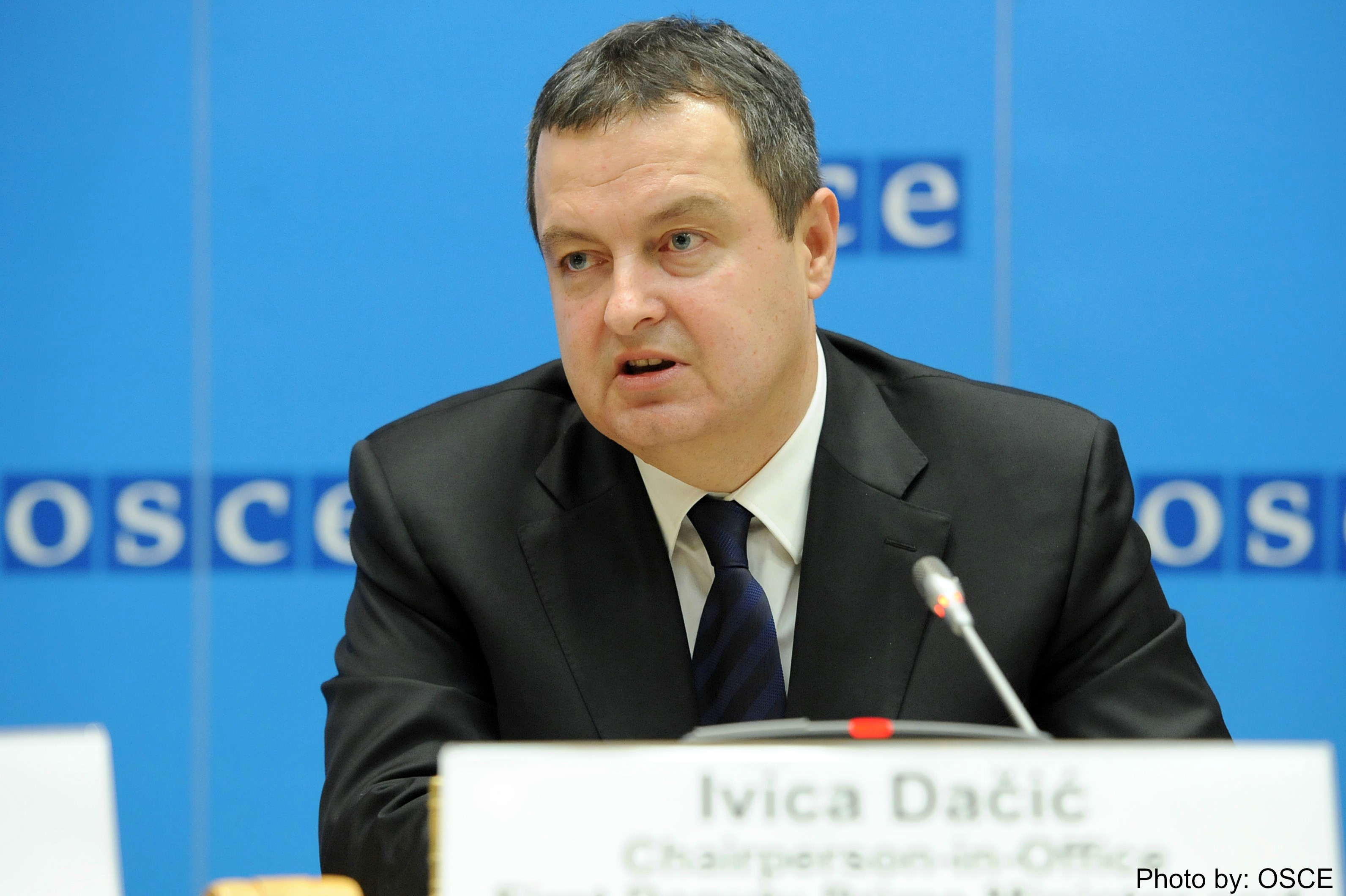



| Wednesday, 08 April 2015. | |
| On International Roma Day, OSCE Chairperson-in-Office and ODIHR Director call for youth focus to promote greater Roma social integration | |
| + larger fontnormal font- Smaller font |
 Ivica Dačić, OSCE Chairperson-in-Office and Serbia’s Foreign Minister, and Michael Georg Link, Director of the OSCE Office for Democratic Institutions and Human Rights (ODIHR), called today for greater efforts to ensure broader Roma and Sinti participation in social, political and cultural life. On the occasion of International Roma Day, they stressed that a focus on youth, including on education, is key to providing Roma communities with greater opportunities. Ivica Dačić, OSCE Chairperson-in-Office and Serbia’s Foreign Minister, and Michael Georg Link, Director of the OSCE Office for Democratic Institutions and Human Rights (ODIHR), called today for greater efforts to ensure broader Roma and Sinti participation in social, political and cultural life. On the occasion of International Roma Day, they stressed that a focus on youth, including on education, is key to providing Roma communities with greater opportunities.“Education is key to opening up greater opportunities for equal participation of Roma and Sinti youth in social, political, economic and cultural life. Empowering Roma and Sinti youth and preventing their marginalization can play a huge part in making greater opportunities and participation in society a reality not only for them, but also for the communities they might lead someday,” Dačić said, while calling on Participating States to take active measures to support this. Mr. Link underscored that failing to tap the potential of Roma and Sinti youth, and of their broader communities in general, would represent a lost opportunity. “The marginalization and discrimination suffered by Roma prevent them from exercising and protecting their human rights, from meaningful public and political participation, and from making a realistic contribution to the lives of the societies from which they are effectively excluded,” Link said. “Ensuring the meaningful participation of Roma and Sinti youth, and particularly young women, in relevant decision-making processes is an investment not only in the future of Roma communities, but general society in countries across the OSCE region.” The Organization’s work in this area, based on the 2003 Action Plan on Improving the Situation of Roma and Sinti in the OSCE Area, was further reinforced in a 2013 decision by the Ministerial Council focusing on issues affecting Roma and Sinti women, youth and children. In December 2014, ahead of assuming the OSCE Chairmanship, the Serbian authorities supported ODIHR in organizing an international conference of Roma and Sinti youth representatives. At the conference in Belgrade, participants from 17 OSCE Participating States called for greater activism and volunteerism on the part of Roma youth as ways to mobilize and empower their communities and stimulate participation in politics and decision-making. |